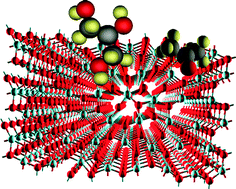Glycerol utilization: solvent-free acetalisation over niobia catalysts
Abstract
With increasing biodiesel production, availability of

* Corresponding authors
a Materials and Catalysis Research Centre, Dept. of Chemical and Biological Sciences, University of Huddersfield, Queensgate HD1 3DH, UK
b Department of Chemistry, University of Liverpool, Liverpool L69 7ZD, UK
c King Saud University, PO Box 2455, Riyadh 11451, Saudi Arabia
d
Van' t Hoff Institute for Molecular Sciences, University of Amsterdam, Science Park 904, 1098 XH Amsterdam, The Netherlands
E-mail:
n.r.shiju@uva.nl
Fax: +31 (0)20 525 5604
With increasing biodiesel production, availability of

 Please wait while we load your content...
Something went wrong. Try again?
Please wait while we load your content...
Something went wrong. Try again?
G. S. Nair, E. Adrijanto, A. Alsalme, I. V. Kozhevnikov, D. J. Cooke, D. R. Brown and N. R. Shiju, Catal. Sci. Technol., 2012, 2, 1173 DOI: 10.1039/C2CY00335J
To request permission to reproduce material from this article, please go to the Copyright Clearance Center request page.
If you are an author contributing to an RSC publication, you do not need to request permission provided correct acknowledgement is given.
If you are the author of this article, you do not need to request permission to reproduce figures and diagrams provided correct acknowledgement is given. If you want to reproduce the whole article in a third-party publication (excluding your thesis/dissertation for which permission is not required) please go to the Copyright Clearance Center request page.
Read more about how to correctly acknowledge RSC content.
 Fetching data from CrossRef.
Fetching data from CrossRef.
This may take some time to load.
Loading related content
